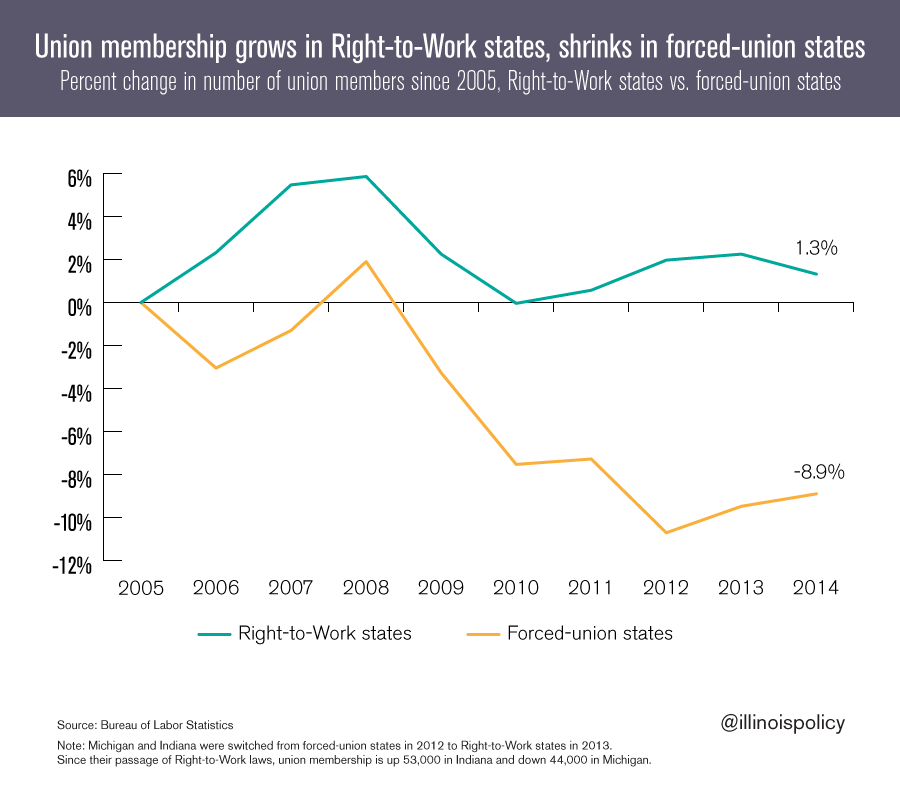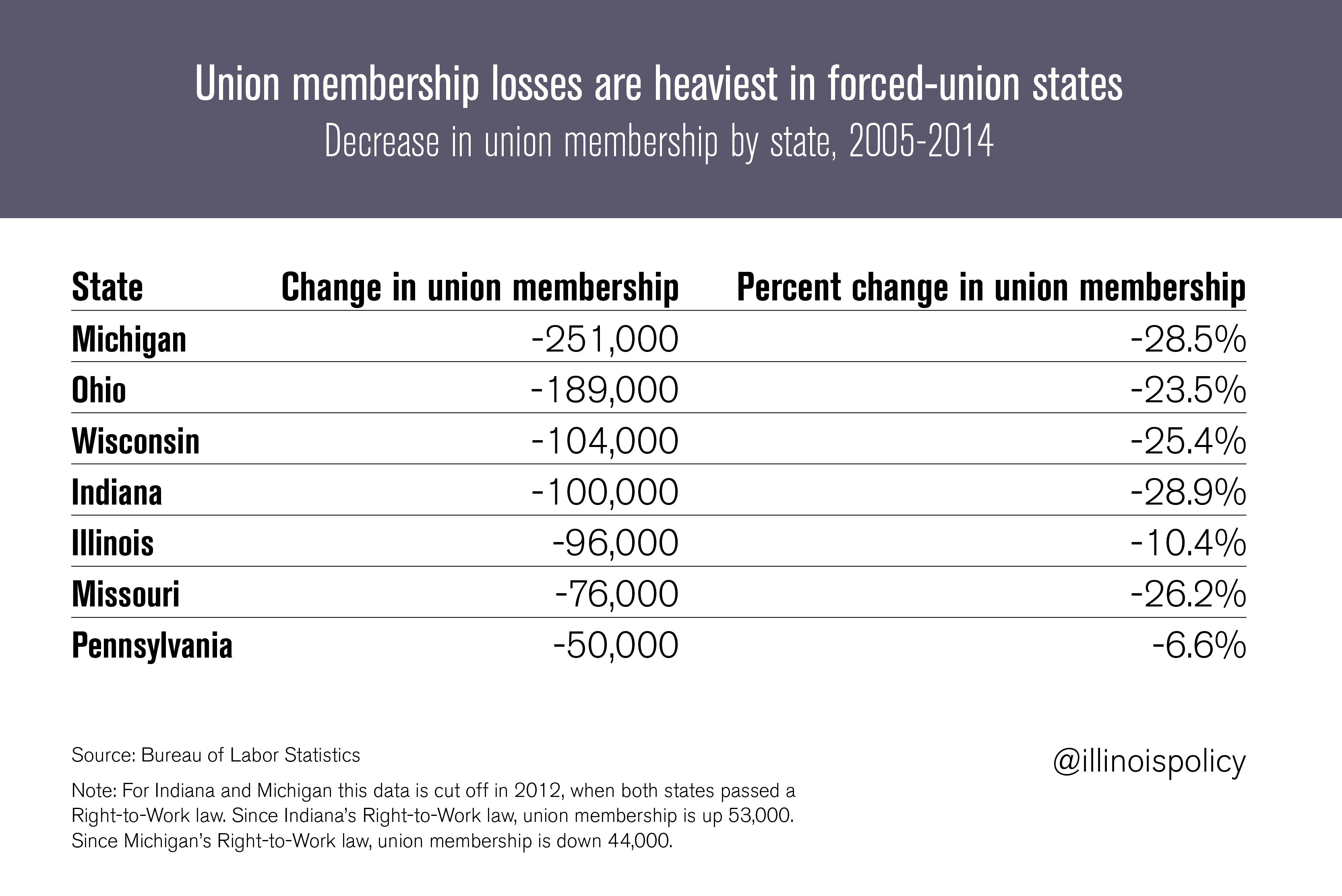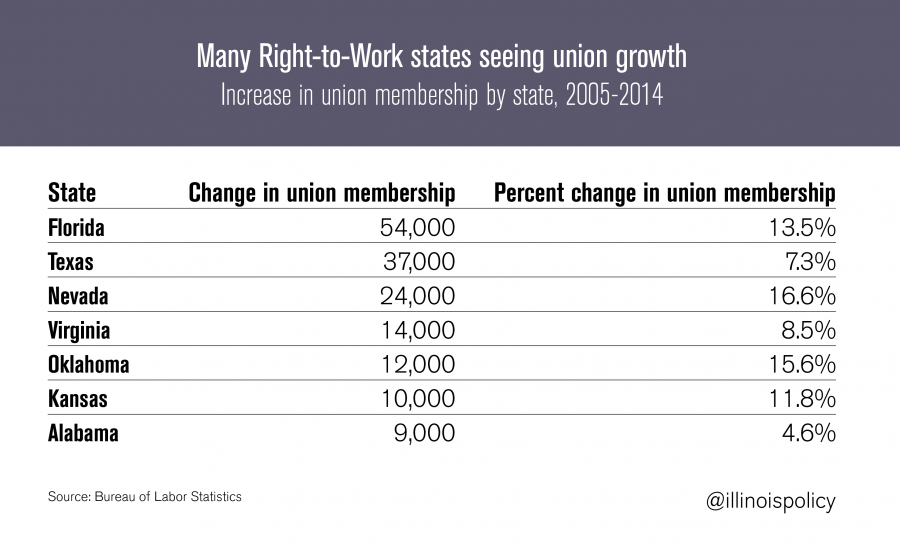Union membership collapsing in forced-union states
An unhealthy business climate and the forced-union status quo in states like Illinois does not serve the well-being of rank-and-file union members.
Over the past decade, union membership has collapsed by 9 percent, on average, in “forced union” states. In these states, workers are forced to join a union or pay union dues as a condition of employment at any workplace that is unionized. Meanwhile, union membership has experienced a modest growth of 1.3 percent in Right-to-Work states, where workers have the freedom to join or opt out of unions altogether.
This illustrates an important point. An unhealthy business climate and the forced-union status quo in states like Illinois does not serve the well-being of rank-and-file union members. In addition, a Right-to-Work law makes unions more accountable to their member workers, because members who are not served well will simply leave the union and stop paying dues. On the other hand, many of the states that have seen union membership decline most are places with a forced-union status quo.
The Midwest and Great Lakes industrial states are a case in point. These states, which were all forced-union (Indiana and Michigan passed Right-to-Work laws in 2012), have seen devastating declines in union jobs and thus union membership over the last decade.
On the other hand, longtime Right-to-Work states in the South and West have seen modest growth in union membership over the last decade, led by Florida and Texas.
The Wisconsin Assembly voted March 6 to pass statewide Right-to-Work legislation, with Gov. Scott Walker’s signature scheduled for March 9. This continues the Midwest experiment with worker freedom that has borne the fruit of economic growth and job creation in Michigan and Indiana.
Illinois can engage in this experiment at the local level by having home-rule municipalities pass local Right-to-Work ordinances, as has occurred in Kentucky. This would allow communities to choose whether a Right-to-Work law is the right way forward in providing more opportunities for union and non-union workers alike.



